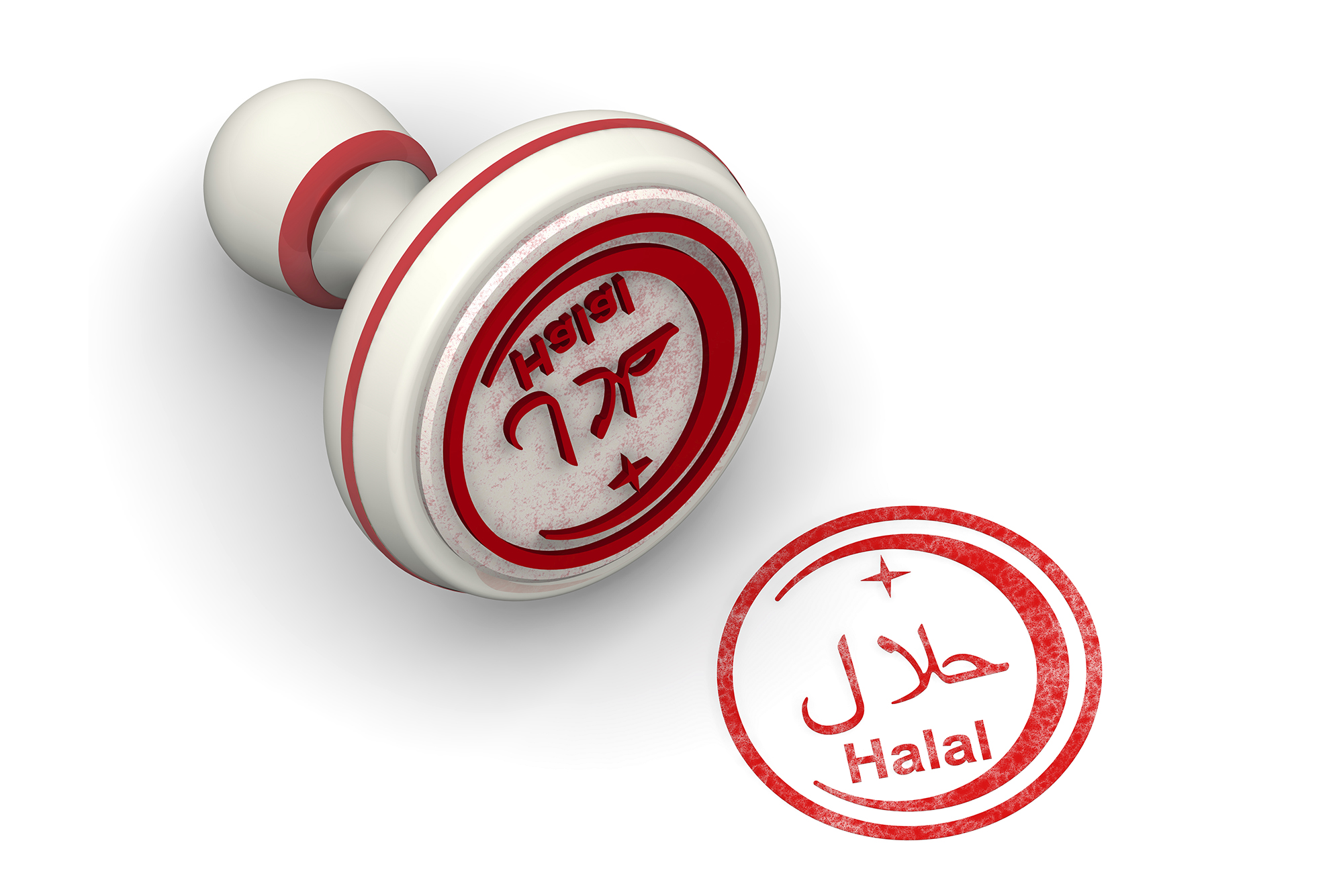Halal Certification

What is Halal?
Halal is an Arabic word meaning “lawful” or “permitted.” This term commonly describes what a Muslim is permitted to eat, drink, use, or do. The two key factors upon which something is deemed halal are:
- 1. The source(s) of the ingredients
- 2. The status of the production equipment and personnel.
For something to achieve the “Halal” status, it must adhere fully to the above.
Certification. What? Why?
Halal certification includes documentation that certifies that products and services aimed at the Muslim population meet the requirements of Islamic law and therefore are suitable for consumption by Muslims. The certification entails a process which guarantees the characteristics and quality of the products and/or services conform to the rules established by the Islamic authorities internationally or locally that allow the use of the “Halal” seal. This process is predominantly applicable to meat products and other foods such as dairy, canned food and additives.
Scope of Certification Services
While a plethora of organizations perform “Halal Certification” services across the world, Consilium Advisory’s focus goes entirely goes to certifying establishments not products. Of course, to certify an establishment, we ultimately must determine that all products it produces or sells, all processes, and all personnel are fully and continuously compliant with the Halal certification guidelines and standards.
The establishments we primarily serve with Halal Certification services include these in the business of:
- - Food and drink
- - Fashion and Cosmetics
- - Pharmaceuticals
Opportunities & Advantages of Halal Certification
Halal certification opens traditional non-Muslim products to emerging markets. A significant trend toward growing trade with the Middle East and South East Asia means Halal certification is a booming business in for many manufacturers in the continental US, Europe and Australia where the sector is projected to be worth $1.6 trillion worldwide by 2050.
Among the top advantages of Halal Certification:
- - Improve the marketability of products produced outside the Muslim world to Muslim populations exceeding 1.6 billion worldwide
- - Open new markets for Arab and Muslim manufacturers for the Muslim population especially in Europe and the continental US exceeding 50 million
- - Facilitate the importing countries requirements for Halal compliance
- - Establish public trust in products that are thoroughly scrutinized and certified
